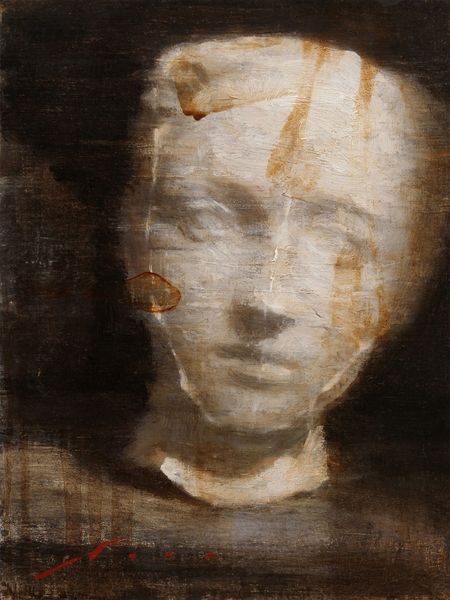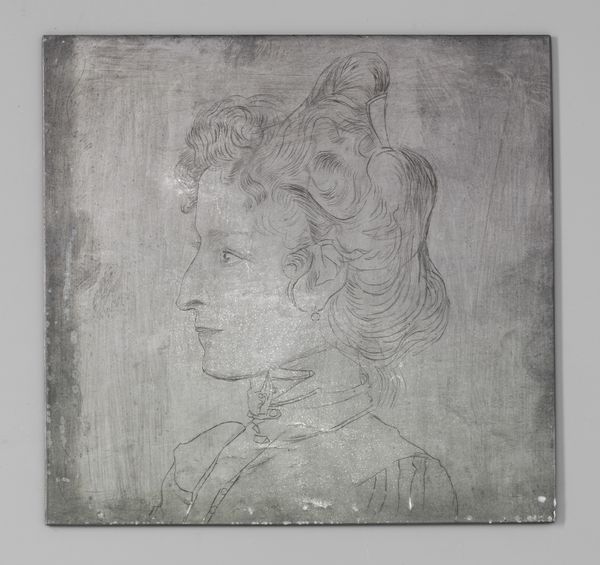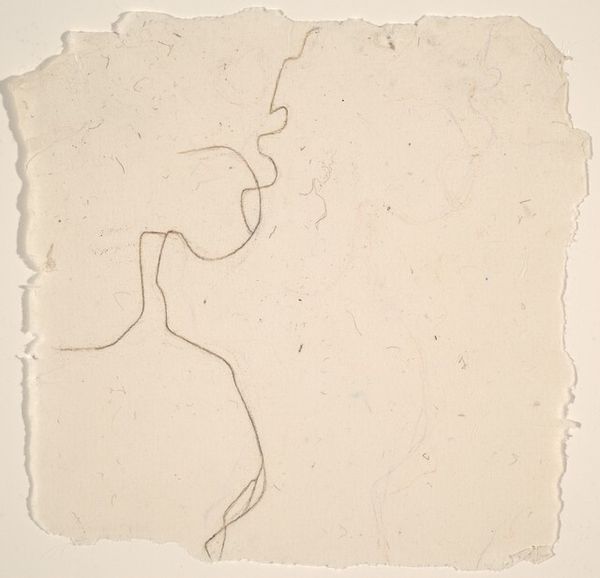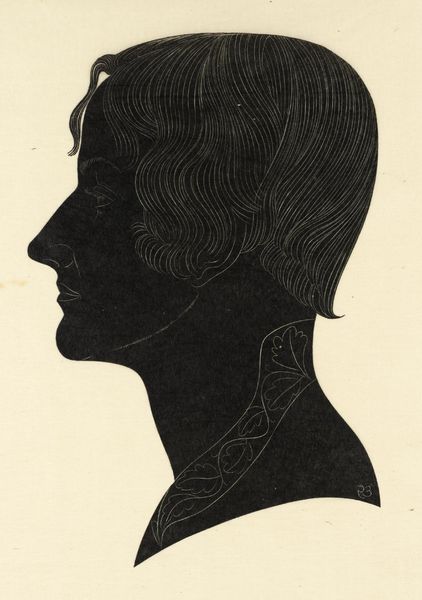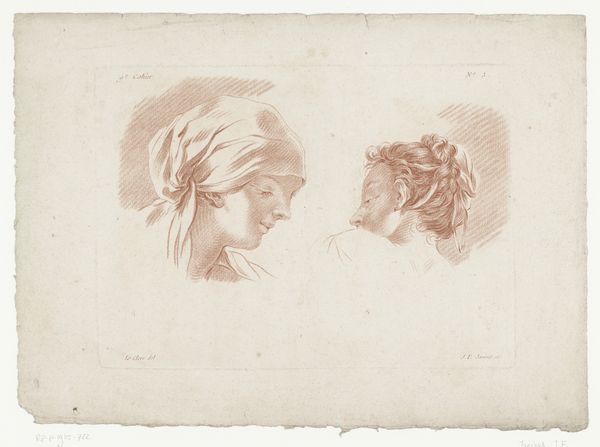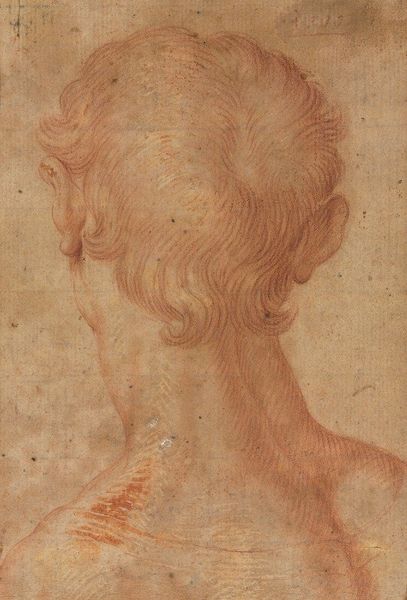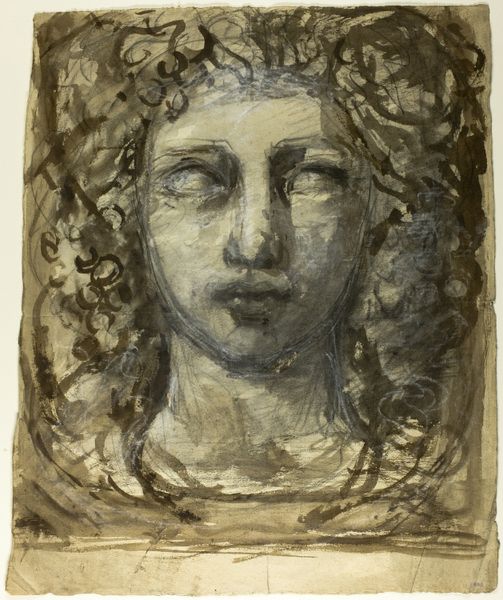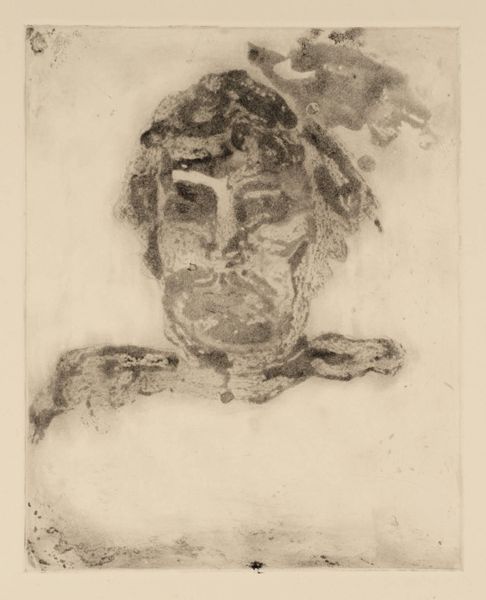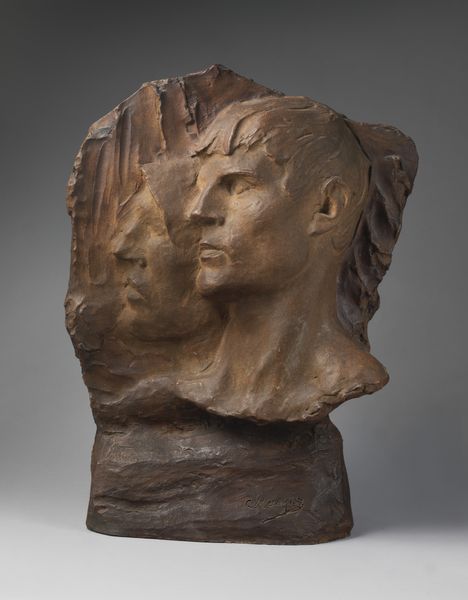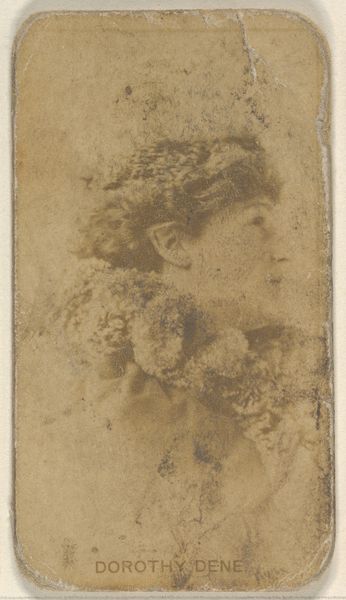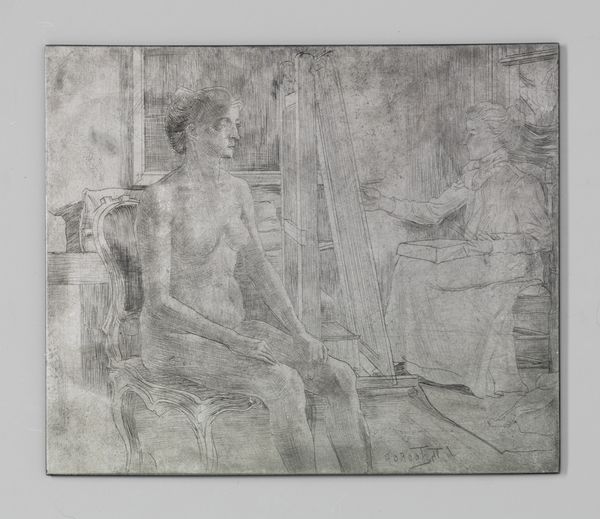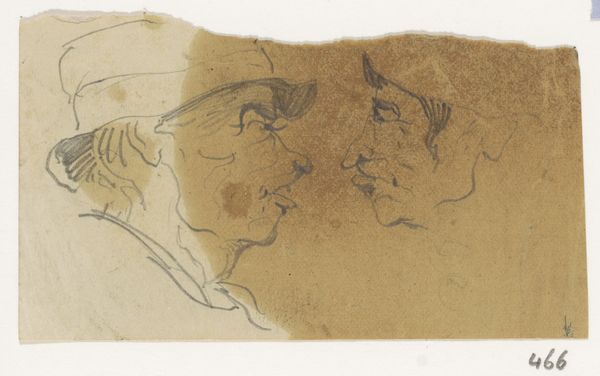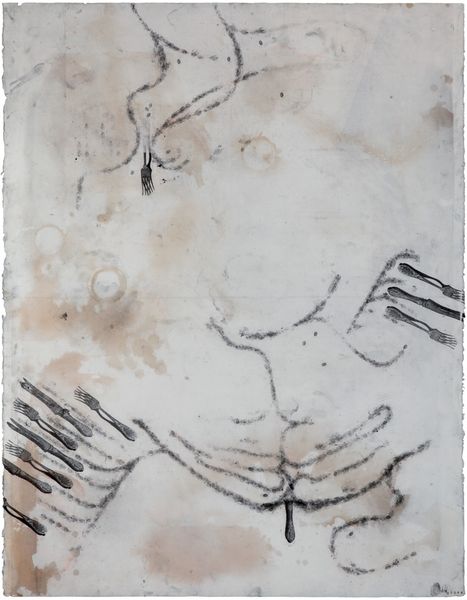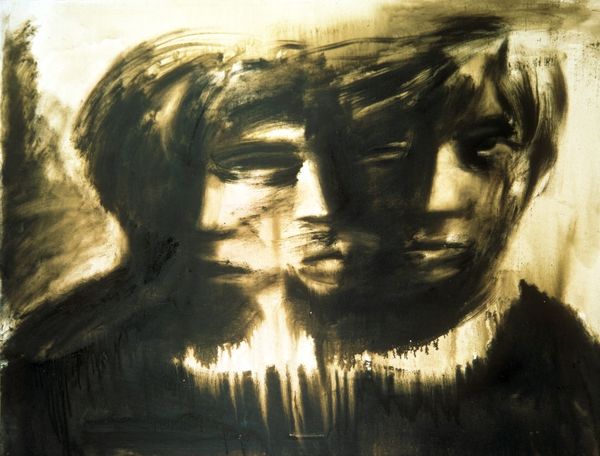
mixed-media, carving, metal, alabaster, bronze, sculpture, marble
#
portrait
#
mixed-media
#
carving
#
neoclassicism
#
metal
#
sculpture
#
alabaster
#
bronze
#
romanesque
#
roman-mythology
#
sculpture
#
mythology
#
charcoal
#
marble
Dimensions: 89 x 117 cm
Copyright: Pietropoli Patrick,Fair Use
Editor: This is "Janus," a 2016 mixed-media piece by Pietropoli Patrick, housed here at the MFA. The two faces, the silver backdrop… there’s a haunting, almost spectral quality to it. How do you interpret this work? Curator: That’s a very perceptive observation. It evokes liminality and reflection on cultural heritage. Considering Patrick’s choice of Janus, the Roman god of beginnings, transitions, and duality, this work encourages us to reflect on how the past informs the present. What stories are embedded in those faces for you? Editor: I see the stark contrast between the neoclassical style and what looks like mixed media techniques, and the god Janus. To me, the piece reads like a commentary on cultural inheritance. Is that a reasonable reading? Curator: Absolutely. The Romanesque and neoclassical elements clash and coalesce simultaneously. Patrick’s 'Janus' confronts the Western canon's construction and representation, encouraging viewers to question the established order, its power structures, and how they shape contemporary identity. To whom does our inheritance truly belong, and how are they being used today? Editor: It sounds like you’re saying the artist isn’t just depicting a Roman god, but engaging with broader questions of history and power? Curator: Precisely! By reimagining this ancient figure through a modern, fragmented lens, Patrick invites us to consider the politics inherent in representations of the past and challenges the notion of a singular, authoritative historical narrative. It asks: Who controls the narrative and whose stories are left untold? Editor: Wow, I definitely see a much deeper dimension now. It makes you think about whose voices are heard and whose are silenced in art history and contemporary society. Curator: Indeed. Hopefully, "Janus" helps us to critically examine our present, informed by the past and striving for a more inclusive future.
Comments
No comments
Be the first to comment and join the conversation on the ultimate creative platform.
